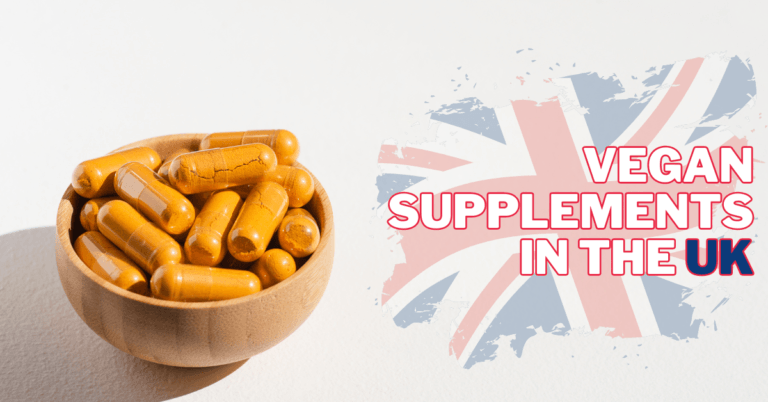Best Vegan Iodine Sources For Your Kids
Best Vegan Iodine Sources For Your Kids
Iodine is a trace element required for synthesizing thyroid hormones, which regulate your child's body's metabolism and cell development and assist in the growth of your brain and bones.
Furthermore, iodine is an essential nutrient for pregnant women and newborns since it is required for proper brain growth and cognitive function – two things no responsible parent would overlook regarding their growing child!
Iodine is crucial to kids' thyroid function, yet getting enough from natural food sources is tricky. Fish, such as tuna or cod, shrimp, dairy products, and iodized salt, are some of the most popular sources of iodine.
Although dairy products and iodized salt are only fortified with iodine, they remain the most popular and accessible sources, so most people will never consider their iodine intake.
On the other hand, Vegans should pay close attention to the iodine level of their meals, as vegan sources are few and far between, and vegan iodine supplements have yet to catch up to vitamin B12.
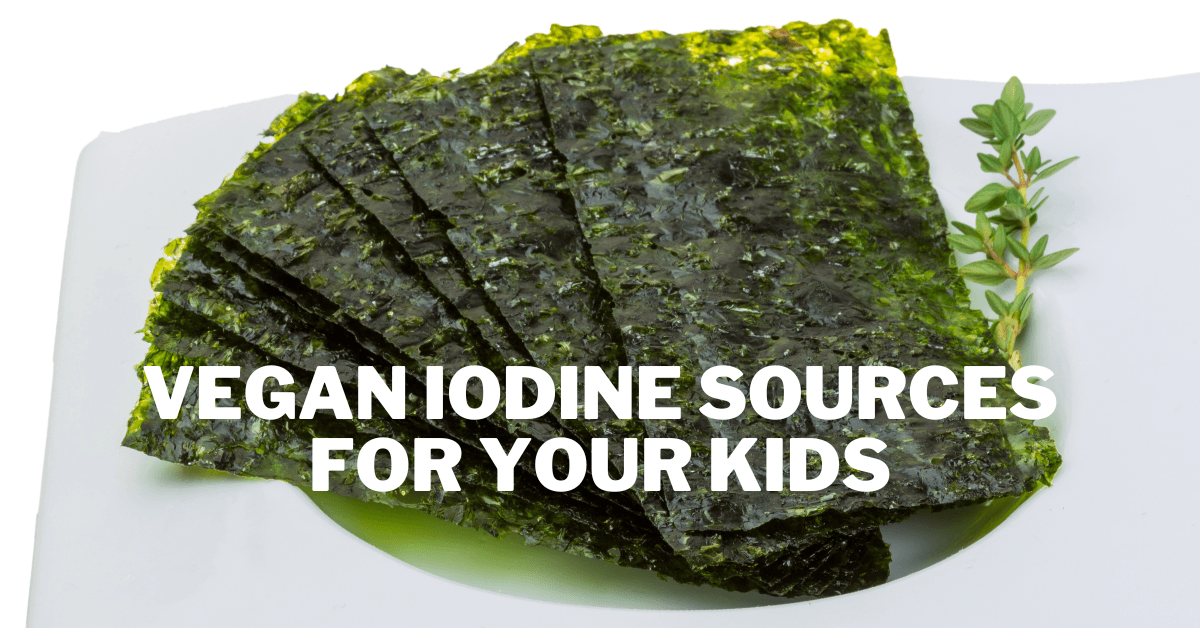
Iodine Intake Recommendations
The shortage of iodine is especially harmful to children's brain development. As a result, the demands of pregnancy and nursing are substantially greater. Iodine's Recommended Dietary Allowances (RDAs) are as follows:
- Birth to 6 months: 110 micrograms (mcg)
- 7 to 12 months: 130 mcg
- 1 to 3 years: 90 mcg
- 4 to 8 years: 90 mcg
- 9 to 13 years: 120 mcg
- 14 to 18 years: 150 mcg
- 19 years and older: 150 mcg
- Pregnancy: 220 mcg
- Lactation: 290 mcg
Iodine Deficiency Symptoms
Iodine shortage can induce a variety of unpleasant and sometimes dangerous symptoms. Neck swelling, pregnancy-related concerns, weight increase, and learning challenges are among them.
It has symptoms that are very similar to hypothyroidism or a lack of thyroid hormones. Because iodine is required for the production of thyroid hormones, a deficit means your body is unable to produce enough of them, resulting in hypothyroidism.
The following are eleven symptoms of iodine insufficiency.
1. Increased Bodyweight
Unexpected weight gain is one of the most visible symptoms of an iodine deficit.
When a person's metabolism is healthy, calories are burned to provide energy. Hypothyroidism, or a lack of thyroid hormones, causes the metabolism to slow down.
Calories are more likely to be stored as fat when a person's metabolism slows down, resulting in weight gain.
It's crucial to remember that weight growth isn't always indicative of a lack of iodine. When other factors cannot explain a rise in weight, it may just be a symptom. A more prevalent cause of weight gain is eating too many calories or not exercising enough.
2. Neck Swelling
The most typical symptom of an iodine shortage is swelling in the front of the neck. A goitre is a condition in which the thyroid gland gets abnormally large.
The thyroid gland is a small, butterfly-shaped gland near the front of the neck. It produces thyroid hormones in response to a signal from the thyroid-stimulating hormone.
The thyroid gland uses iodine to generate thyroid hormones when TSH levels in the blood rise. However, if you're weak in iodine, your body won't be able to generate enough of them.
To compensate, the thyroid gland works harder to generate more hormones. This causes the cells to replicate and expand, resulting in a goitre.
Most cases can be addressed simply by increasing your iodine intake. However, if a goitre is left untreated for a long time, it may result in chronic thyroid damage.
3. Tiredness
A decrease in metabolic rate causes a person to get weary. As a result, weariness is another sign of iodine deficiency.
Tiredness, like weight gain, is not always a sign of iodine insufficiency. It is natural for a person to feel sleepy if they do not receive enough sleep.
It could be a sign of an iodine shortage if you're feeling weary for no apparent reason.
4. Weakness And Fatigue
Iodine shortage is also associated with fatigue and weakness. According to some research, approximately 80% of patients with low thyroid hormone levels, which occur in cases of iodine shortage, experience fatigue, sluggishness, and weakness.
Thyroid hormones aid in the production of energy, which causes these symptoms. When thyroid hormone levels are low, the body can't produce as much energy as it normally can. Your energy levels will probably plummet and you'll feel exhausted as a result.
Exhaustion and weakness were the most common symptoms among those with low or somewhat low thyroid hormone levels, according to a survey of 2,456 persons.
5. Hair Loss Is A Common Problem Of Iodine Deficiency
Thyroid hormones aid in the regulation of hair follicle growth. Hair follicles may stop renewing if your thyroid hormone levels are low. Hair loss may occur as a result of this over time.
As a result, persons who are deficient in iodine may have hair loss. Hair loss was found in 30% of patients with low thyroid hormone levels in a study of 700 adults.
Low thyroid hormone levels, on the other hand, appear to trigger hair loss only in people who have a familial history of hair loss, according to other studies.
If you have a shortage of iodine, eating enough of this mineral will help you balance your thyroid hormone levels and reduce hair loss.
6. Problems With Memory
Thyroid hormones have a crucial role in brain development. Iodine shortage may result in a lack of these hormones, causing memory and learning difficulties.
The hippocampus was found to be smaller in patients with low thyroid hormone levels in a 2014 study. The hippocampus is a memory-related region of the brain.
7. Skin Dryness
Dry, flaky skin might indicate hypothyroidism, as a lack of iodine can cause it. Thyroid hormones aid cell regeneration. A shortage of these hormones can lead to a buildup of dead skin cells, resulting in dry, flaky skin.
8. Having A Colder Feeling Than Usual
A typical sign of an iodine deficit is feeling cold. According to some research, over 80% of people with low thyroid hormone levels may be more sensitive to cold temperatures than typical.
Because iodine is required to produce thyroid hormones, a deficit might result in a drop in thyroid hormone levels.
Low thyroid hormone levels may cause your metabolism to slow down since thyroid hormones assist in controlling the speed of your metabolism. Because a slower metabolism produces less heat, you may feel cooler than usual.
9. Slow Heart Rate
A lack of iodine might cause a person's heart to beat slowly. When a person's heart rate decreases, he or she may feel dizzy or nauseous. It could potentially make them pass out.
10. Obstacles To Pregnancy
Iodine insufficiency is common among pregnant women. This is because they must consume enough to meet both their own daily demands and the needs of their growing child.
Breast milk provides iodine to newborns, therefore the increased demand for iodine remains throughout breastfeeding.
Iodine deficiency during pregnancy and lactation can have negative consequences for both the mother and the infant.
A goitre, weakness, weariness, and a feeling of being cold indicate an underactive thyroid in mothers. Iodine deficiency in babies, on the other hand, can stifle physical growth and mental development.
In addition, a severe iodine deficit has been linked to an increased risk of stillbirth.
11. Irregularity Of Periods
An iodine deficit can result in heavy and irregular menstrual flow.
Given that iodine is required to produce thyroid hormones, this, like most other symptoms of iodine shortage, is linked to low thyroid hormone levels.
According to one study, 68% of women with low thyroid hormone levels had irregular menstrual cycles, compared to only 12% of healthy women.
Women with low thyroid hormone levels have more frequent menstrual periods with excessive bleeding, according to research.
This is because low thyroid hormone levels interfere with the signals of hormones involved in the menstrual cycle.
15 Vegan Iodine Sources
I’m sharing top vegan iodine sources that will help provide daily iodine value for your kids.
1. Iodized Salt
All types of iodized salt are the top vegan iodine sources. According to the ATA, iodized salt eradicated much of the iodine deficiency that plagued the United States in the early 1900s.
Iodized salt is table salt combined with minute amounts of various iodine salts. It looks like plain salt.
However, a little goes a long way! A quarter teaspoon (1.5 grams) of iodized table salt contains 76 micrograms of iodine.
2. Seaweed
“One of the best sources of iodine are sea veggies,” Hever says. According to the National Institutes of Health, seaweed such as nori, wakame, and kombu kelp provide some of the highest levels of iodine among all foods.
232 mcg of iodine are found in ten grams of dried nori, a form of seaweed widely used to make sushi. This is significantly above the recommended dietary requirement of 150 micrograms of iodine.
3. Kombu Kelp
Kombu kelp is a brown seaweed that can be purchased dry or powdered. It's commonly used to make dashi, a Japanese soup stock.
In a study that looked at the iodine content of seaweed samples from several Asian countries, it was discovered that kombu kelp has by far the highest quantity of iodine compared to other seaweed species.
Each sheet of kombu kelp can contain up to 2,984 mcg of iodine (1 gram). This amounts to about 2,000% of the daily recommended intake.
Excess iodine consumption is generally well-tolerated, but it can cause thyroid dysfunction in sensitive patients.
4. Bread
Not all bread has a significant amount of iodine. But if you need a reason to eat bread, this is it!
Iodate dough conditioner is used to produce several whole-wheat and white breads. These types of bread contain 198 and 185 mcg of iodine per slice, respectively.
5. Nori
Red seaweed, or nori, is a form of red seaweed. It has a substantially lower iodine level than brown seaweeds.
The sort of seaweed usually used in sushi rolls is nori. Nori has an iodine concentration of 16–43 mcg per gram or around 11–29 percent of the recommended requirement.
6. Prunes
Prunes, which are dried plums, are a rich source of iodine in addition to being a good source of vitamins and minerals like vitamin K, iron, and potassium. Five dried prunes give around 9% of the recommended daily intake, or about 13 mcg.
7. Navy Beans
For 12 cups of navy beans, you can get 32 mcg of iodine. The navy bean is a small, white dried bean that receives its name from its use as a staple diet by sailors.
Like other legumes, Navy beans are nutrient-dense, including potassium, protein, iron, and folate. After cooking, they can be used in soups, stews, stir-fries, and casseroles.
8. Wakame
Wakame is a species of brown seaweed that has a mildly sweet flavour. Miso soup is the typical use for it.
The iodine content in wakame seaweed varies depending on where it is cultivated. Iodine levels in Asian wakame are higher than in Australia and New Zealand.
According to PubMed Central, the average amount of iodine in wakame seaweed worldwide was 66 mcg per gram or 44 percent of the daily required dose.
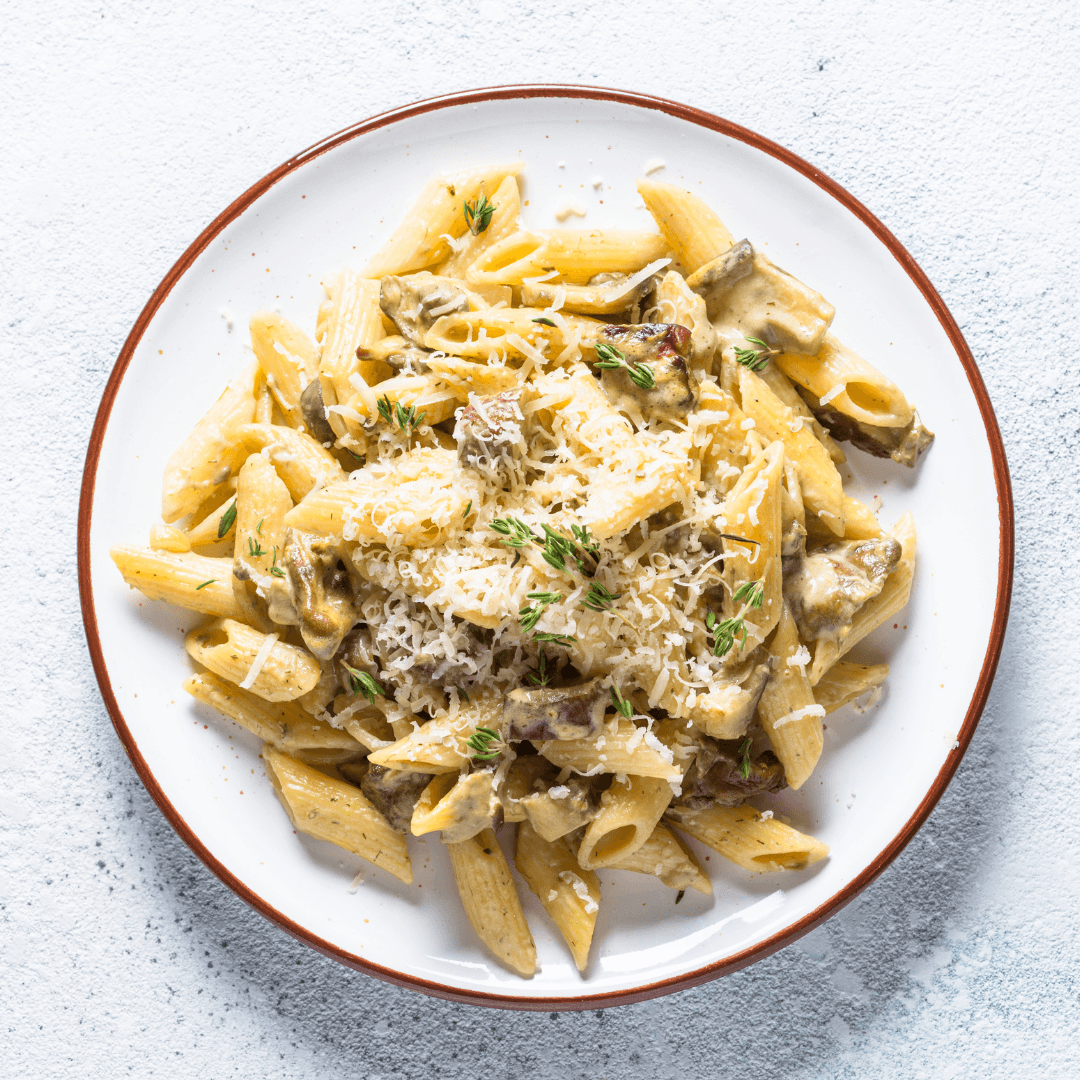
9. Pasta
Although pasta isn't a strong source of iodine, it can provide 36 mcg of iodine per serving when cooked in water with iodized salt. If you're searching for a pleasant way to get more iodine in your diet, try these vegan pasta recipes.
10. Canned Fruit Cocktail
On the iodine concentration scale, canned fruit cocktails are rather low. Half a cup of canned fruit cocktail in light syrup has six mcg, although the canning process decreases some of the vitamin value.
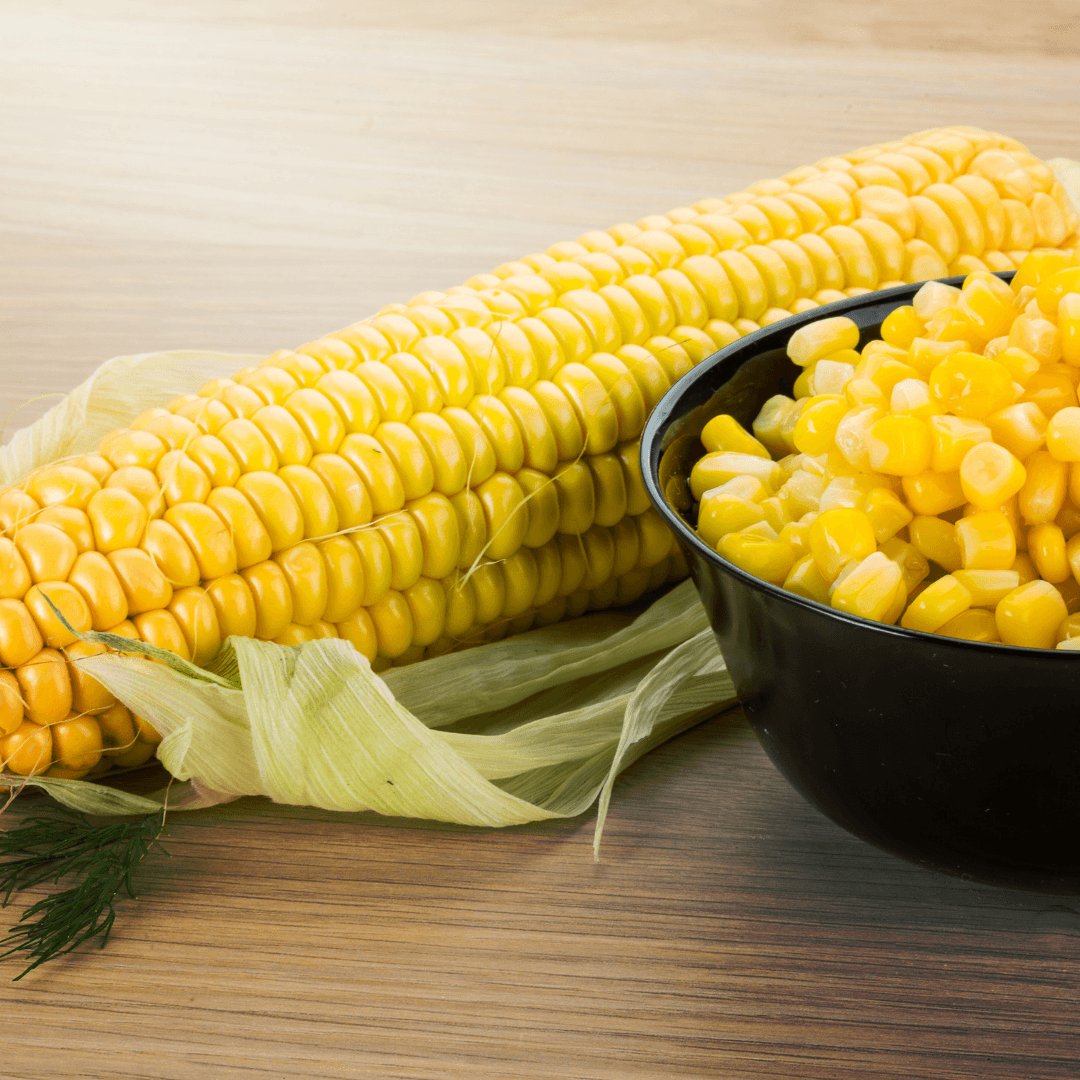
11. Corn
14 mcg Iodine in 12 cups corn. Corn, one of the most widely consumed grains on the planet, is high in vitamin A, selenium, and omega-6 fatty acids.
Corn can be eaten directly from the cob or processed into cornmeal, tortillas, tamales, grits, popcorn, corn starch, and corn syrup.
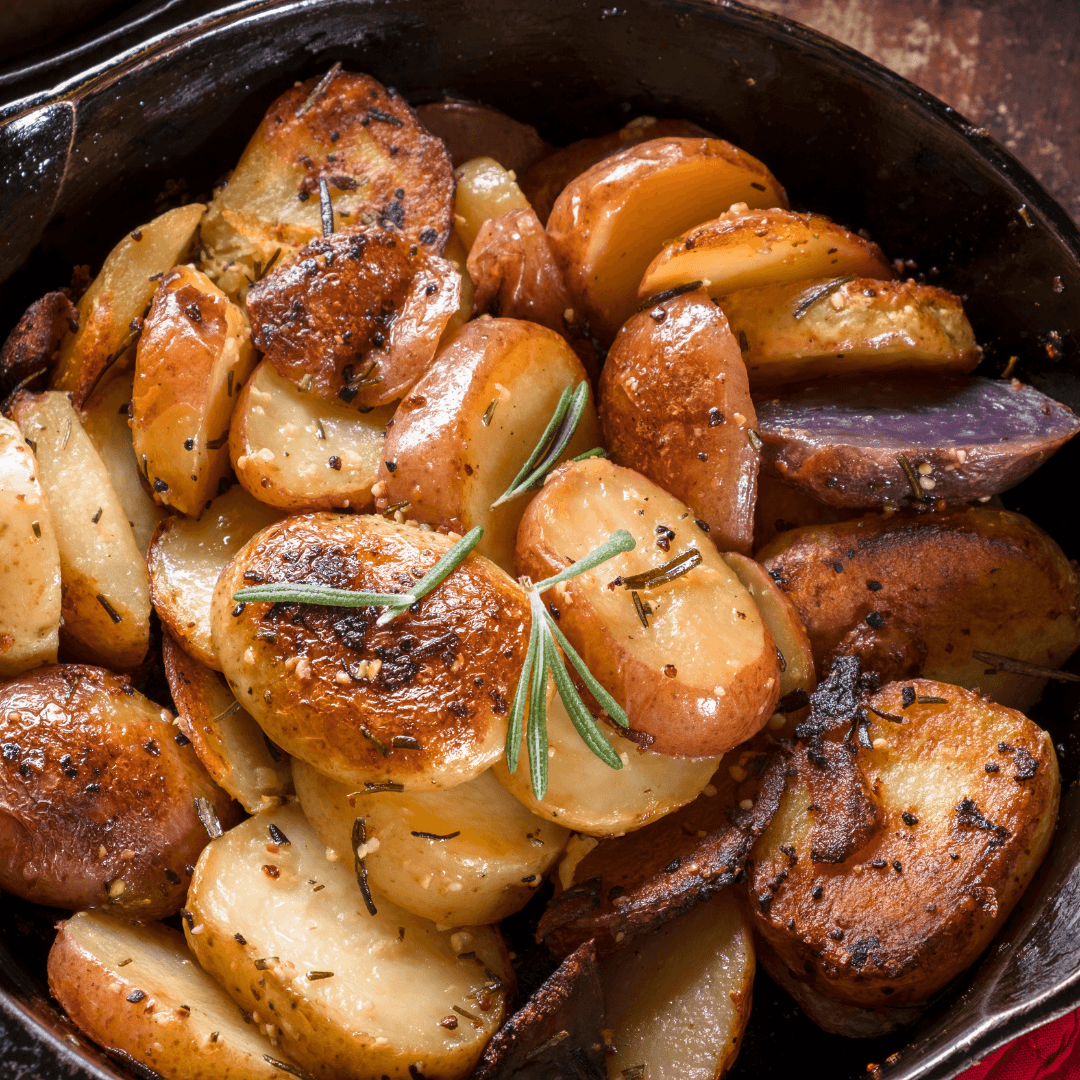
12. Potatoes
All kinds of potatoes are other vegan iodine sources—60 mg per medium potato.
Potatoes are a starchy root vegetable high in vitamins B6 and C, a mainstay in many cuisines worldwide.
The adaptable potato can be fried, boiled, mashed, steamed, or roasted and is frequently used as a side dish or snack in soups and stews, such as fries or chips.
13. Strawberries
1 cup of Strawberries contains 13 mcg of iodine. Fiber, vitamin C, manganese, folate, and potassium are all found in strawberries.
They are frequently consumed raw but can also be cooked for jams and pies. Strawberry shortcakes and other delights are served at festivals across the United States.
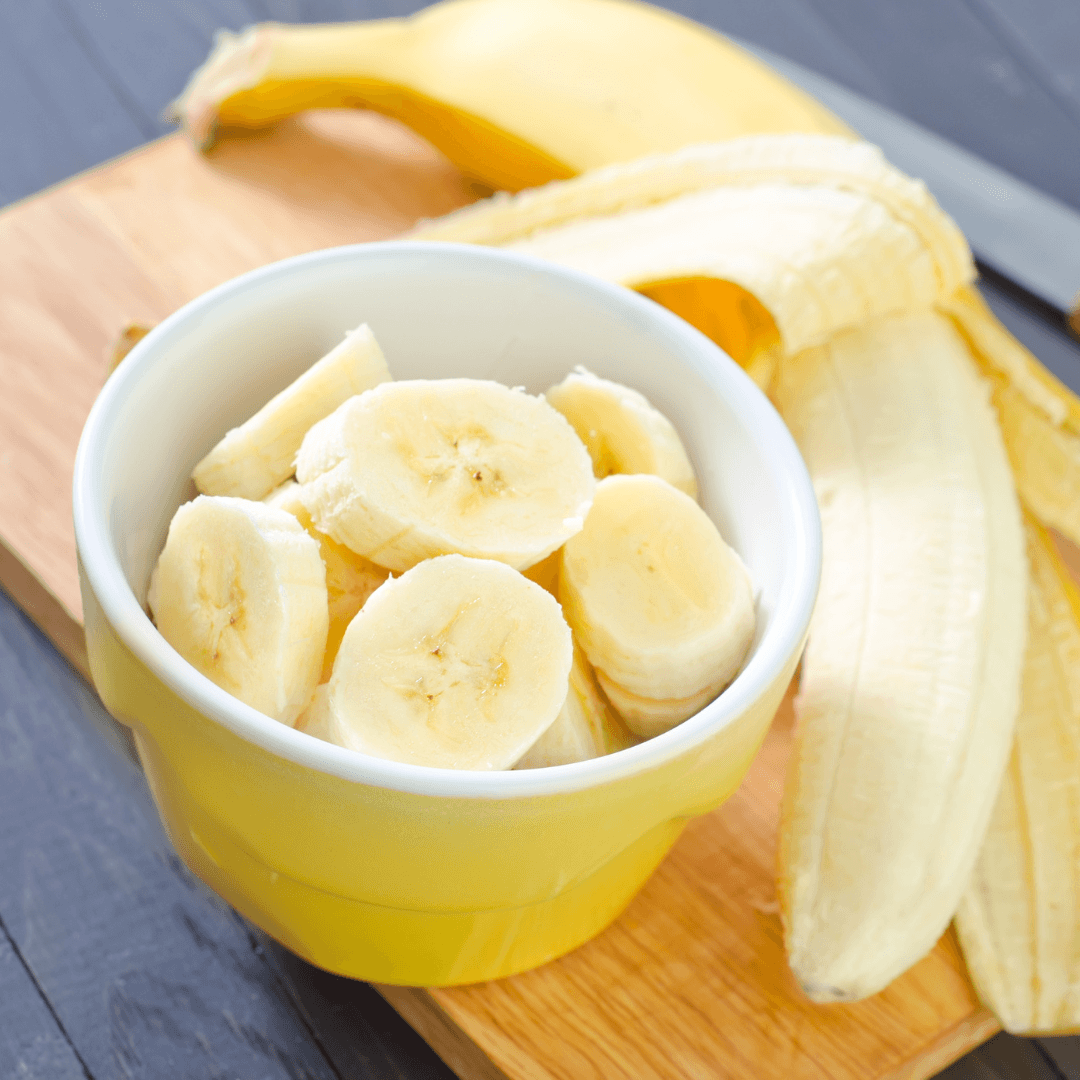
14. Bananas
One medium banana has 3 mcg of iodine. This vibrant yellow tropical fruit, while technically a berry, is high in potassium, vitamin B6, and vitamin C.
A banana can be eaten alone or sliced on top of cold cereal for breakfast. Bananas are used in curry recipes in the Philippines and South India, and bananas are fried into chips or other batters.
15. Fortified Foods
A few dairy replacements, such as soya milk, now contain iodine. Iodine is found in regular cow's milk but only in non-organic milk. Learn why it's a good idea to drink dairy milk and why it's not.
Note: Resources From Trusted sources (National Institutes of Health Office of Dietary Supplements) Governmental authority, Wiley (Peer-reviewed journal), PubMed Central, (National Institutes of Health)
How Can You Test If You're Deficient In Iodine?
If your doctor feels you have an iodine deficit, they will usually conduct one of four tests to determine your iodine levels:
1. Urine Examination
The urine examination is the most basic and quick exam. Although you can get findings in minutes, it isn't as accurate as other iodine tests.
2. Blood Test
A blood test is a quick and accurate way to check your iodine levels. It does, however, take longer to read than a urine test.
3. Patch Test For Iodine
The iodine patch test is a procedure in which doctors apply an iodine patch to your skin and examine it 24 hours later.
The patch disappears in less than 24 hours for those not deficient in iodine. However, if you have a deficiency, the iodine will be absorbed more quickly through your skin. This test is not the most precise, but it is inexpensive and quick.
4. Loading Test For Iodine
Over 24 hours, this test evaluates how much iodine you excrete in your urine. It isn't the quickest or most convenient exam available. (You must collect all of your urine samples within 24 hours.) However, it is reasonably correct.
Conclusion
Iodine is a mineral that is necessary for the production of thyroid hormones for your kids. Because deficiency and toxicity are both possible, ensuring you're getting enough of what you need without going overboard is important.
On a vegan diet, iodized salt is the most dependable approach to ensure adequate iodine consumption. You should also include the vegan iodine sources I’ve shared in your kids' meal plan.
Speak to a Registered Dietitian if you need to reduce your salt intake or are concerned about your iodine intake in any other way.
Supplementing with iodine may be beneficial, but always see your doctor before taking or quitting supplements.
I trust you enjoyed this article about the Best Vegan Iodine Sources For Your Kids. Please stay tuned for more blog posts to come shortly. Take care!
JeannetteZ
>>> Please click here to read my Vegan Travel Guides To World Destinations <<<
>>> Want To Become Vegan And Learn How To Create Delicious, Cruelty-Free, Healthy AND 100% Vegan Meals? Try These Amazing Vegan Cooking Courses With This Free 7-DAY MEMBERSHIP <<<
Your Opinion Is Important To Me
Do you have any questions or ideas? I would love to hear from you. Please leave me your questions, experiences, and remarks about this article on the Best Vegan Iodine Sources For Your Kids in the comments section below. You can also reach me by email at Jeannette@LivingTheVeganLifestyle.org.
Disclosure
This post may contain affiliate links. I earn from qualifying purchases as an Amazon Associate and other affiliate programs. Please read my full disclosure.
Here are links to some of my favourite articles:
14 Best Vegan Lifestyle Tips For Beginners
10 Best Vegan Restaurants In Bern, Switzerland
37 Best Vegan Restaurants In Baden, Austria
The Ultimate Guide To 5 Days Vegan Challenge
9 Delicious Vegan Healthy Breakfast Ideas












